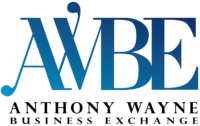Selling a Business



We have assisted many business owners in achieving the goal of a successful sale. In this process, Anthony Wayne Business Exchange assists you in the goals you want to achieve. We work closely with all your professional advisors throughout the process of selling. We recognize this is a difficult decision and assure you a smooth transaction. Confidentiality is very important in the sale process and we protect your confidentiality by requiring all of our potential buyers to sign a non-disclosure agreement and complete a buyer registration. These forms allow us to make an early determination of the buyer’s experience and financial abilities, giving you the comfort of knowing that the buyer is honoring confidentiality and that you are not going to waste time with unqualified people.
All sales of businesses are based on the physical assets employed, the customer base, the people utilized, the product being sold, and you. A business has a value based upon its relative assets and its ability to produce a profit. We utilize several methods in determining the value of your business. We need to become familiar with you and your business. Please complete the Seller Registration in order for us to do so. Please Contact Us if you have any further questions.
1. Assess Your Succession Plans
This is the starting point for a potential sale. Ideally it is done on a proactive basis where the owner or owners plan ahead and can choose the optimal timing and maximum value point for themselves and the organization. We work with many owners in this proactive fashion. View exit & succession planning for more on this. If there is no pre-planning, this will likely be more of a reactive situation with fewer options. The plans of both the Exiting Owner or Owners and Remaining Employees need to be considered for optimal results under either case.
2. Objective of the Sale
Your next step is to determine whether you should have a total exit after a short transition period or phase out over an extended period (a year or more). This decision should be driven by its impact on the value of your business-what a likely buyer would be willing to pay for it. If you are the key link with customers and clients or critical suppliers and the reason they do business with your firm, either for your perceived personal expertise or their confidence in working with you, this would argue for a phase out over time while the customers/suppliers become comfortable with and build a relationship with the new owner. This is typical of many professional service businesses such as CPA firms. Many businesses of this type bring a new owner in as a “partner” and over time have that person build relationships with the key customers/clients or suppliers. This greatly reduces the risk of losing key customers/clients or suppliers who often are a significant part of the value of the business that a buyer considers when determining the price he or she is willing to pay.
3. Value the Business and Determine Stock or Asset Sale
Ideally you have had professional business valuations conducted on an on-going basis and have a good estimate of the current value of your business. If so, you will be in a small minority of business owners and a step ahead. If not, now is the time to determine the business value. It is critical to have an experienced professional develop this. Done correctly, it will greatly enhance the sale experience. Done poorly, it will make the whole process very difficult or cause you to leave significant money on the table-neither a good situation. Part of this assessment should be a determination of whether the sale should be a stock or an asset sale. For legal reasons, most sales are done as asset sales. However, in some cases other factors will override this and make a stock sale a better option.
4. Rationalize Leverage of Assets
Since most buyers will be financing the business purchase, this step will put you ahead of the game by understanding what cash a buyer will need to bring to the transaction. We use this to determine the screening criteria to qualify a potential buyer. Our significant experience with bankers and past transactions allow us to accurately assess what leverage will likely be applied to each asset class. The buyer will either need to have cash for the difference or other collateral that the bank accepts. We also assess whether programs such as those from the SBA will be available and if so, their impact on the cash needed from a buyer. The net result is that we know what financial resources a potential buyer must have to qualify to be able to acquire your business.
5. Formalize Broker Representation
This is the point to contractually confirm your relationship with the business broker. This will kick off several key steps in getting the business ready for sale so when buyers are ready, so are you. Among these steps are Identifying Pertinent Due Diligence Requirements. While each buyer will likely have some unique due diligence requests, much will be the same. By identifying and reviewing these common items up front, potential delays and roadblocks at a critical time in the sales process can be minimized, if not avoided completely. It is also important at this point to begin Broker Coordination with the Seller’s Professional Advisors. This gets your key advisors aligned with your goals and avoids last minute surprises that can delay or even kill a sale.
6. Prepare A Professional Presentation Package
We all know the saying, “You only have one chance to make good a first impression.” That is especially true regarding a potential buyer considering your business. It is also true that typically a buyer has never met you before and may know nothing about how you operate the business. You want to both have your business presented in the best light while also beginning to build credibility and rapport with the potential buyer. We achieve both of these objectives for you by developing a professional presentation package for your business-one that is complete yet concise, well supported by facts and reflects a high quality image. Should this be a good match with the buyer’s interests, they move ahead. If it isn’t a fit, they can determine this quickly and avoid wasting your time.
7. Qualify and Introduce the Buyer
While many may be curious about your business, some will not be qualified financially or experience-wise to make the purchase. Someone needs to sort those truly interested and able to move ahead with a purchase from all the rest. Maintaining confidentiality that the business is for sale while doing this is also important. Losing employees or customers or motivating competitors to work harder due to rumors is seldom productive and in some cases could reduce the value of the business. As a third party, it is much easier for us to maintain confidentiality during this process. We require each potential buyer to sign a non-disclosure agreement before moving ahead with them. We then determine their interests and financial resources. Only those who have the financial ability to purchase your business and an interest in that type of business are shown the presentation packet. This way, only qualified buyers know that your particular business is actually for sale and they have agreed in writing not to disclose information to uninvolved parties. Those who find your business a match are then introduced to you and the process moves ahead.
8. Presenting An Offer To Purchase
Once a buyer has met with you and determined that your business is the right one for them, an offer to purchase is needed. While it sounds simple, it is critical that all of the pertinent details be included in this up front to avoid potential delays and misunderstandings that could derail a sale. We work on your behalf to assist the buyer in addressing all of these details in his or her initial offer. Often there will be Negotiation and Counter Proposals before a final agreement suitable to both parties is complete. As a third party we are able to serve as an intermediary during this process and maintain good relations between you and your buyer. Once an agreement is finalized, the buyer is asked to establish their Due Diligence Criteria so the required information can be provided.
9. Buyers Performs Due Diligence and Eliminate Contingencies
Buyers normally only have summary information before a signed offer to purchase is reached. They have made their offer on the premise that this information is correct. Due Diligence is their opportunity and responsibility to verify that this summary information was correct. There is a limited period specified in the purchase agreement for them to raise any concerns for resolution. There are also typically some contingencies-often the approval of financing, assignment of a lease or similar issues that can not be completed before the offer is accepted. Once these are resolved and eliminated, the concluding step remains.
10. Close the Sale with the Professional Assistance of the Attorneys, Accountants, Banker and Broker
Every business sale is a significant event where the details need to be properly taken care of. Often years of effort both before from the seller and after from the buyer will be built on the foundation created by the closing. It is critical that it be done right. Based on our experience with many transactions, we make sure that this happens.

